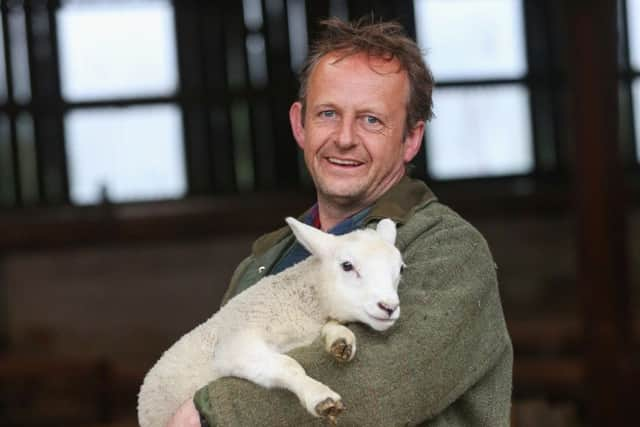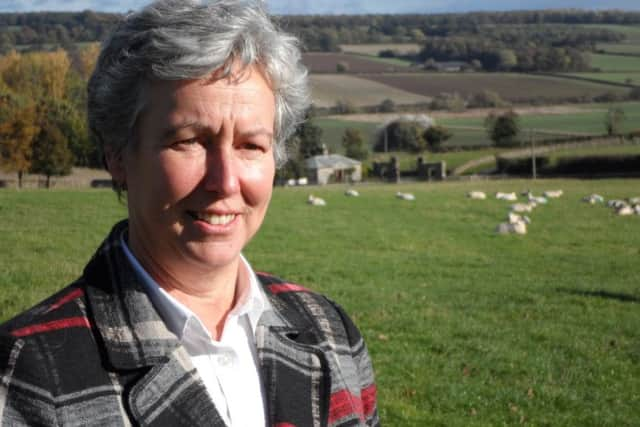BREXIT ANALYSIS: Opportunity beckons for British farming


A simplified administration of farming policy, strong export opportunities and access to labour are all high on agriculture’s Brexit wishlist.
Will Terry, a sheep farmers near Scarborough, said: “There is a huge opportunity to improve things from where we are. Getting back on a national basis and moving away from European rules, long term, will be a good thing. I can’t see a way of dreaming how agriculture in England can be the same as agriculture in Romania or Lithuania.”
Advertisement
Hide AdAdvertisement
Hide AdMr Terry, who is chairman of the regional board of the National Farmers’ Union (NFU), added: “British farmers should be proud of the food they produce to one of the world’s highest standards and be confident we can market our materials to our own population and around the world, and hopefully that includes Europe.”


Under the EU’s Common Agricultural Policy, England’s Rural Payments Agency pays out more than £2bn a year to support the farming and food sector and a reduction in funding is expected under a new British agricultural policy.
Mr Terry said: “I can well see that the farm support from Europe is going to be smaller when it comes out of the UK government, if it exists at all, but I am going to have to readjust the way I farm to deal with that.
“There’s a real mixture of some people wanting things to stay exactly the same as they are done today and others looking at innovative ideas of supporting the food sector, rather than farming directly.
Advertisement
Hide AdAdvertisement
Hide Ad“We are in a good situation. The UK population are really quite happy about what British agriculture does for the UK, not just food production, but energy generation, employment and right down to tourism, but it is about the big conversation with everyone working together.”


As a sheep farmer, he fears being hit by 51 per cent trade tariffs for sheep meat under World Trade Organisation rules: “We could be looking at a cliff edge with sheep meat but I have to have trust and I have to be totally optimistic that people are going to do what benefits the UK as a whole.”
NFU regional director Adam Bedford said: “This is a big day for Yorkshire farmers, food producers and all those looking after our beautiful environment on a daily basis.
“There’s been a lot of talk about what happens once Article 50 is triggered - well, the work starts now to ensure that when we leave the EU local businesses across the supply chain - from farm to fork - can grow, thrive and focus on meeting the needs of local people.
Advertisement
Hide AdAdvertisement
Hide Ad“Only last week the NFU met with the Secretary of State to discuss the complex negotiations ahead – negotiations that we believe should aspire to maintain free and open trade with the EU and accommodate businesses labour requirements. In terms of a new domestic agriculture policy, we are pleased that the Secretary of State is in broad agreement with the need to continue investment in the farming industry beyond 2020 to mitigate volatility, reward environmental delivery and promote greater productivity and competitiveness.”


Dorothy Fairburn, regional director of the Country Land and Business Association, added: “Negotiating the best possible free trade deal for UK food and farming sector with the EU will be essential for the region, especially since farming activity here intersects with a healthy visitor economy.
“Outside the EU, new markets and opportunities also beckon and it will be important that our agri-food sector competes and trades on a level playing field.
“The ‘British Brand’ in terms of our agri-food produce - hallmarked by high food standards and animal welfare – should be harnessed and capitalised in future. Food provenance and labelling has become increasingly important, adding value on local and global markets alike. Yorkshire can lead the way on this.
Advertisement
Hide AdAdvertisement
Hide Ad“Policy-wise, the Common Agricultural Policy, inclusive of direct support to farmers, has shaped our agri-economy for decades. Leaving the EU should give us the opportunity to redefine our approach to food, farming and the environment that will both promote and protect our environment whilst also supporting a resilient and productive farming sector.”